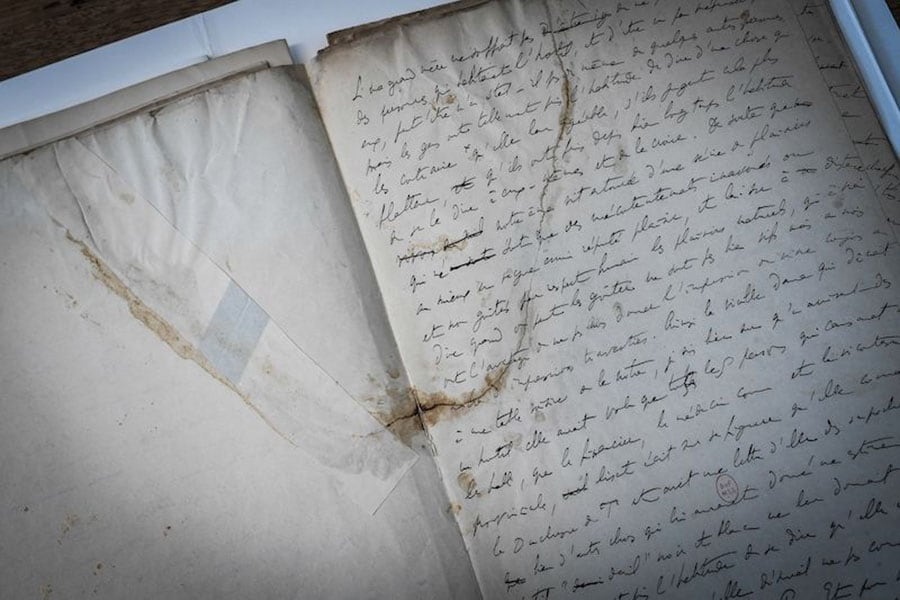
A bluffer's guide to Proust, 100 years after his death
For those who have been putting Proust's novels on their reading list, here are five fun facts you can drop into a conversation that will make you sound like an expert
 This photograph taken on July 8, 2022 shows a slip of an original manuscript of late French writer Marcel Proust prior to its renovation at the "bibliotheque Nationale de France" in Paris
This photograph taken on July 8, 2022 shows a slip of an original manuscript of late French writer Marcel Proust prior to its renovation at the "bibliotheque Nationale de France" in Paris
France's Marcel Proust, who died 100 years ago on Friday, is regarded as one of the greatest novelists of all time — but few can truthfully claim to have read his 2,400-page masterpiece "In Search of Lost Time".
For those waiting for another lockdown to curl up with his magnum opus, here are five fun facts you can drop into a conversation that will make you sound like an expert.
Unwanted masterpiece
In 1909 Proust launched himself into what would become his masterwork, a novel about memory and the essence of art.
The project grew from one book to a second in 1912 and a third the following year.
"In Search of Lost Time" eventually grew into seven volumes, four published in Proust's lifetime and three after his death at the age of 51 in 1922.




